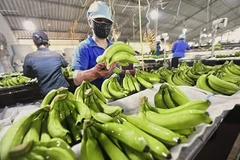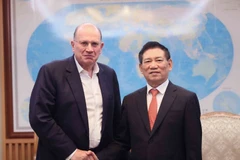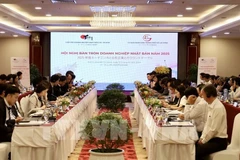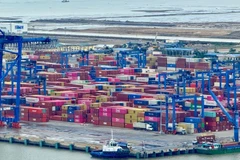“Eurasia Review” network cited expertsfrom the University of Paris ’ Research Institute for Development assaying that Vietnam had experienced a spectacular decrease inpoverty since the early 1990s and the percentage of the Vietnamesepopulation living below the poverty line fell from 58 percent in 1993 to14.5 percent in 2008.
Twenty-five million peoplehave emerged from poverty in 15 years. Only 3.5 percent of thepopulation was considered to be poor in urban areas in 2008, even thoughthe cost of living continued to rise. The rate of wealthy peopleincreased sharply due to its remarkable economic growth over the past 20years, one of the fastest in the world. The country recently enteredthe sphere of emerging countries, said the experts.
According to the experts, Vietnam ’s success was attributable to its“renovation” policy in 1986 with the building of a socialist-basedmarket economy and the establishment of a private sector alongside thepublic sector. The nation based its forward drive on export-based growthand rapidly joined the international economy. Now Vietnam is theworld’s top exporter of both Robusta coffee and pepper and the secondamong clothing exporters to the US . In addition, the nation takes anactive part in international bodies. In January 2007, the countrybecame the 150th member of the World Trade Organisation.
Economic boom does not benefit all Vietnamese, they said, adding thatto alleviate inequality among regions, the Vietnamese Government haspursued an ambitious policy of budget transfer from rich to poor regionswhich has enabled the poorer regions to develop their infrastructure,such as education, health, electricity, road network, water supply anddrainage networks, and other social services.
The network saidthese strategies led to improvement in human development indicators. Theprimary schooling rate has reached nearly 100 percent and lifeexpectancy rose from 63 years in 1990 to 68 in 2005 for men and from 67to 73 for women. Vietnam is trying to fulfil its MillenniumDevelopment Goals (MDGs) as scheduled by 2015.
However, the French experts suggested a number of challenges remainedand Vietnam needed to combat poverty through such measures asreduction of the informal sector which involves street vendors,tradesmen and domestic services.
The globalfinancial crisis had destroyed a large number of jobs and reinforced theinformal sector in Vietnam , they said, adding that the sectorconstituted 50 percent of the labour market and generated an estimated20 percent of its GDP.
The expert recommended thegovernment provide microcredit and training and set up a social welfaresystem for workers in the sector./.
























